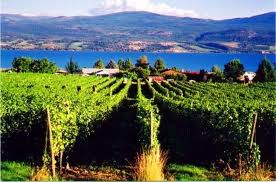This semester I decided that I wanted to minor in history. Taking such a variety of history classes has been extremely interesting and beneficial to my overall degree of wanting to be a teacher. The topic that I have been most intrigued by so far is the concept of each city’s hinterland.
Before this class I never thought about the outskirts of a city and how beneficial they can truly be in regards to the concept of imports and exports. The hinterland is such a necessity to the city that it is surrounding because it has the ability to attract mass amounts of buyers to that city. The large amount of interest in the products that the city has, makes a big profit and benefits the area as a whole. Also, a city’s hinterland can attract many tourists from surrounding cities. For example, the wineries beautiful that surround Kelowna attract people from all over to vacation in Kelowna and taste the wine, which in turn makes money for the city. At the same time, the liquor stores within the city are supported by those same wineries to stock their stores. Coming from a large city like Vancouver, I never considered the power that the surrounding, much smaller, cities had on Vancouver’s city center. For example, a lot of the fruit that is purchased within the greater Vancouver area is in fact from the Okanagan. I fully agree with Max Weber’s belief that a Hinterland is detrimental to a city and that without the aid of a hinterland, the city would struggle immensely in terms of buying imports and selling exports.


I definitely agree with you! I’ve always realized how beneficial the surrounding area of a city was (which I now know are called hinterlands, thanks to this course) but it’s really interesting learning about how the hinterland helps out each city, and I think it would be neat to plan a city with the hinterland in mind. It’s nice to know that Kelowna has a reliable hinterland for its fruit and tourism, and I agree that Kelowna would struggle without these assets; for one thing, the location of Kelowna from larger cities like Vancouver would make it very difficult to rely solely on imports.
I completely agree with you about the value of the Hinterland. I never really thought about it until last year when I took an anthropology course about the Okanagan and realized the history of the area revolves so much around its hinterland for almost every aspect for which it is praised.
Unfortunately, I found this post confusing due to your incorrect use of the word detrimental in this sentence: “I fully agree with Max Weber’s belief that a Hinterland is detrimental to a city and that without the aid of a hinterland, the city would struggle immensely in terms of buying imports and selling exports.”
Detrimental means that it has a negative effect. I think the word that you were looking for given your Blog post was maybe essential.
Oops! Detrimental is not the word I wanted to use! Thanks for showing my mistake, essential is the correct word I was looking for. I must have been out of it when I was posting this:)
Coming from a town where agriculture is probably the biggest money producer I completely agree with the importance of a hinterland. It gives a city essentially an endless supply of resources be that lumber, produce, etc. However the hinterland also offers an ability to escape, and personally I find this to be the most important aspect of the hinterland. In the bigger cities where it goes from one city to the next there is no real ability to escape the bustle of the city and I feel this is detrimental to the human psyche. I love to escape the noise and traffic of the city and escape to the woods where it is quiet and there is nothing that is going to strike you down if you aren’t paying attention. It beautifies a city and gives it real life and I believe this is the most important aspect of the hinterland especially here in the Okanagan.